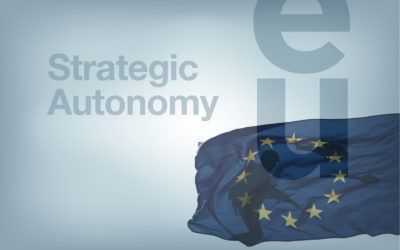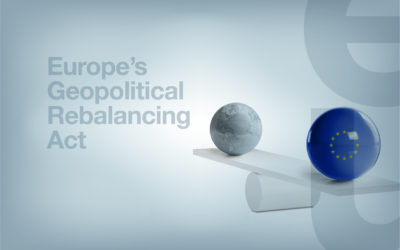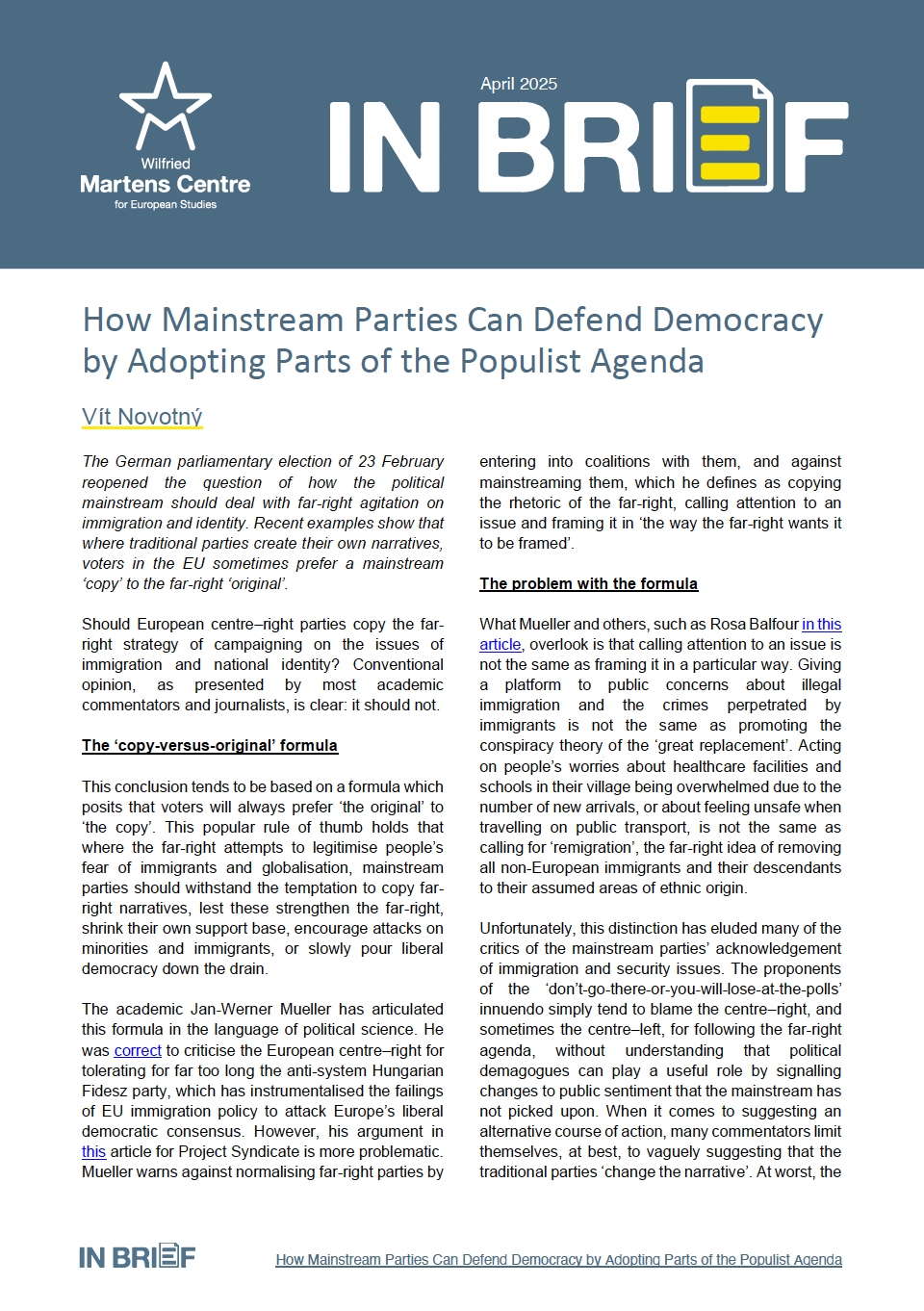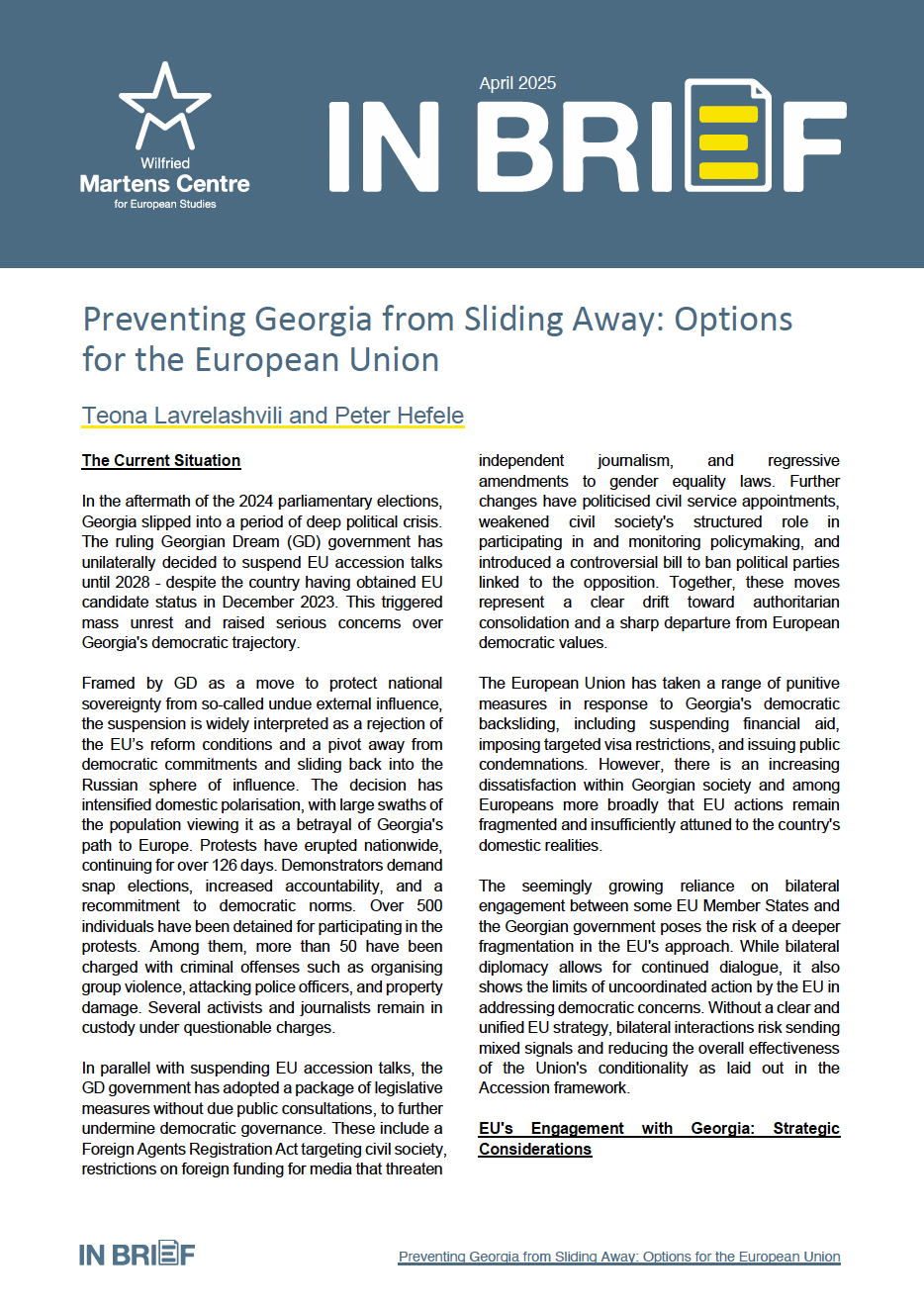‘Slovakia Is Europe’: A Nation Protests for Its Democratic Soul
14 April 2025
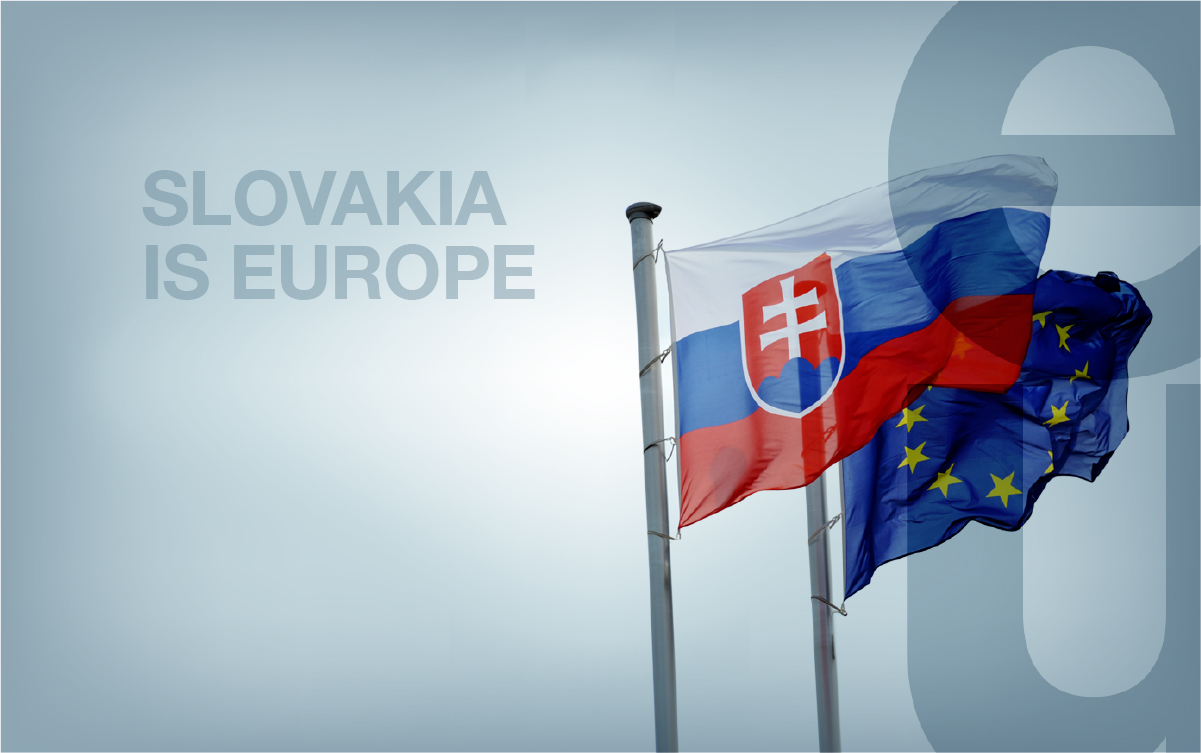
Since the beginning of the year, a strong voice of civic discontent has been regularly heard in Slovakia. Thousands of peaceful protesters, marching under the slogan “Slovakia is Europe”, have clearly expressed their rejection of the country’s foreign policy direction and any rapprochement with Russia. Last Friday was no exception, as they gathered again to express their disagreement with the current government’s actions.
New law on the horizon: Concerns about the freedom of civil society
The main catalyst for the latest wave of protests is the upcoming legislative amendment to the law on non-governmental organisations. Critics agree that the aim of this amendment is to restrict the activities and operations of NGOs. According to their representatives, the draft law introduces an excessive administrative burden for non-profit organisations. NGOs will face strict financial disclosure rules (detailed reports, reporting donors over €5,000). This could reduce private funding and increase state spending. The law is discriminatory, not targeting unions, employer groups, and sports clubs, while straddling NGOs with strict rules, sanctions, and potential dissolution, which many deem unacceptable and unconstitutional. There is a real risk that these powers could be used as a tool for retaliation against organisations that critically monitor and point out the actions of politicians. This proposal bears strong resemblance to the practices of authoritarian regimes such as China, Russia, Belarus and Hungary.
Slovakia on the periphery of Europe?
Over the past months, Slovakia, under the leadership of Prime Minister Robert Fico, has become a less predictable and trustworthy member of the EU, which has gradually pushed it to the margins of events and interest. Despite this, Fico is pushing his own line of foreign policy in all directions of the world, especially towards the East. Alarming were the paranoid accusations of Fico from the beginning of the year, in which he criminalises non-governmental organisations and their protests, while linking them to fabricated scenarios of coups inspired by alleged foreign forces with ties to Ukraine and Georgia. These conspiracy theories are reminiscent of the practices of authoritarian regimes. Furthermore, the ruling coalition announced that in the coming days, they will present a resolution pertaining to public gatherings. Any restrictions on the right to assemble would move Slovakia even closer to an authoritarian model of governance.
Authoritarian tendencies in the shadow of global challenges
At the beginning of February, Fico turned to Elon Musk with an absurd request to investigate alleged US funding of Slovak non-governmental organisations with the aim of destabilising Slovakia. While he deals with conspiracies, he ignores the real threat to the Slovak economy. It is not known whether he has approached the US administration in a similar vein regarding the upcoming introduction of high tariffs on imports from Europe. Yet, this is an existential issue for the Slovak automotive industry, which accounts for the vast majority (87%) of exports to the USA. Slovakia, with its lamentably low economic diversification, could thus become the most vulnerable economy in the EU. A four percent decrease in exports could increase unemployment in Slovakia by 0.2 to 0.5 percent. If trade wars were to deepen, Slovak exports could fall by as much as 4.4 billion euros by the end of 2029. The country, which chronically neglects necessary reforms and naively relies on EU funds, is thus heading towards gloomy economic scenarios.
Ignoring the EU’s security challenges and engaging in dialogue with the aggressor
As well as a lukewarm stance towards the continent’s greatest challenge – defence and security – demonstrated by ignoring key summits and questioning the need for armament directly in the shadow of the war raging in Ukraine, represents a dangerous failure of Slovak politics. Instead of actively engaging in efforts to strengthen European security, Fico shows an open inclination towards narratives that undermine European defence capabilities. The question “Why re-arm?” posed alongside the Russian ambassador in Slovakia last week in Bratislava, is not only cynical but directly treacherous towards European partners. Fico’s planned participation in the celebrations of the end of World War II in Moscow alongside Vladimir Putin represents a shameful re-direction on the international stage at a crucial moment in European history.
Civil society as the last bastion of democracy
Beyond the direct pressure from Slovakia’s incumbent leadership, the country’s civil society suffers acutely from the absence of a strong and united opposition. This weakness is repeatedly exploited by the governing coalition’s tactical manoeuvres. We see this, for example, in Fico’s cynical attempt to change the constitution with an ideologically motivated definition of marriage with the calculated support of the Christian Democrats. Similarly, the hypocritical stance on common European defence – where both government and opposition, despite their professed commitment to the EU and NATO, fearfully reject meaningful Slovak military participation in a potential Ukraine peacekeeping mission – further illustrates this deficiency. These interconnected issues worsen the current crisis and raise concerns about Slovakia’s trajectory, at a critical time for both the country and the EU as a whole. Slovak civil society and its European partners must work together to secure a better outcome.
ENJOYING THIS CONTENT




